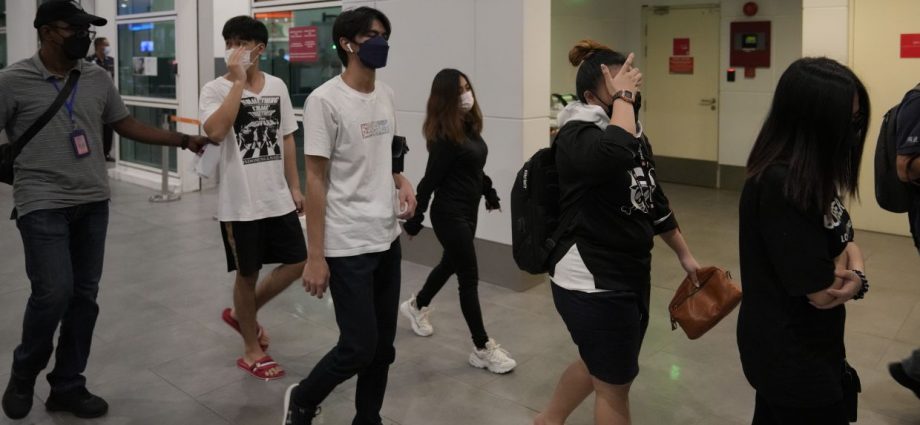
SEPANG, Malaysia: An additional 21 Malaysians rescued from human traffickers in Cambodia and Laos returned home on Oct 6, as the government intensified efforts to locate scam victims reported missing abroad.
Foreign Minister Saifuddin Abdullah, who met some of the returning victims at Kuala Lumpur’s airport, said the government has now managed to rescue 273 people out of 401 reported missing in Cambodia, Laos, Myanmar and Thailand. Most have returned except for 60 still in immigration detention centres in those countries who are waiting to be processed, he said at a news conference.
ALSO READ: Malaysian teenager forced to become a scammer after falling for job ad
Saifuddin, who heads a new government group tackling the issue, said officials have stepped up measures to locate the remaining 128 people. He said most of the victims are in their 20s and urged Malaysians to check carefully before taking any jobs outside the country.
The government has pledged to rescue Malaysians caught in what has been called “modern slavery” in the region. The issue took on more urgency after a 23-year-old Malaysian died in a Thai hospital near the Myanmar border after falling prey to a human trafficking scheme.
Some opposition politicians believe the 401 people reported missing are only a fraction of the actual number of Malaysians who have been caught in such scams. The opposition has urged the government to take legal action against local agents working with the human trafficking syndicates and ban false job advertisements.
Cambodia officials say they have uncovered numerous illegal online schemes that lured illegal workers and have arrested hundreds of people from China and Taiwan for involvement. Police said scammers, mainly from China, have used Cambodia as a base for extorting money. Apart from Cambodia, scammers are also known to have set up bases in Laos and Myanmar near the Thai border.
A UN envoy has said the scam networks, which often have links to transnational organised crime, are set up in countries with weak law enforcement, attracting educated young workers with promises of high earnings. The workers are then subject to isolation and the threat of violence unless they succeed in cheating victims reached by phone into transferring payments into overseas bank accounts. – AP

